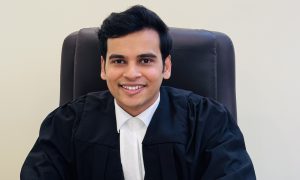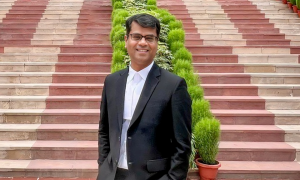ABHISHEK SHARMA, MANAGING PARTNER AT PULASTYA LEGAL, ON ESTABLISHING HIS FIRM AND WORKING AS AN IP LAWYER, HIS STRUGGLES DURING COLLEGE & TAKING RISKS IN LIFE
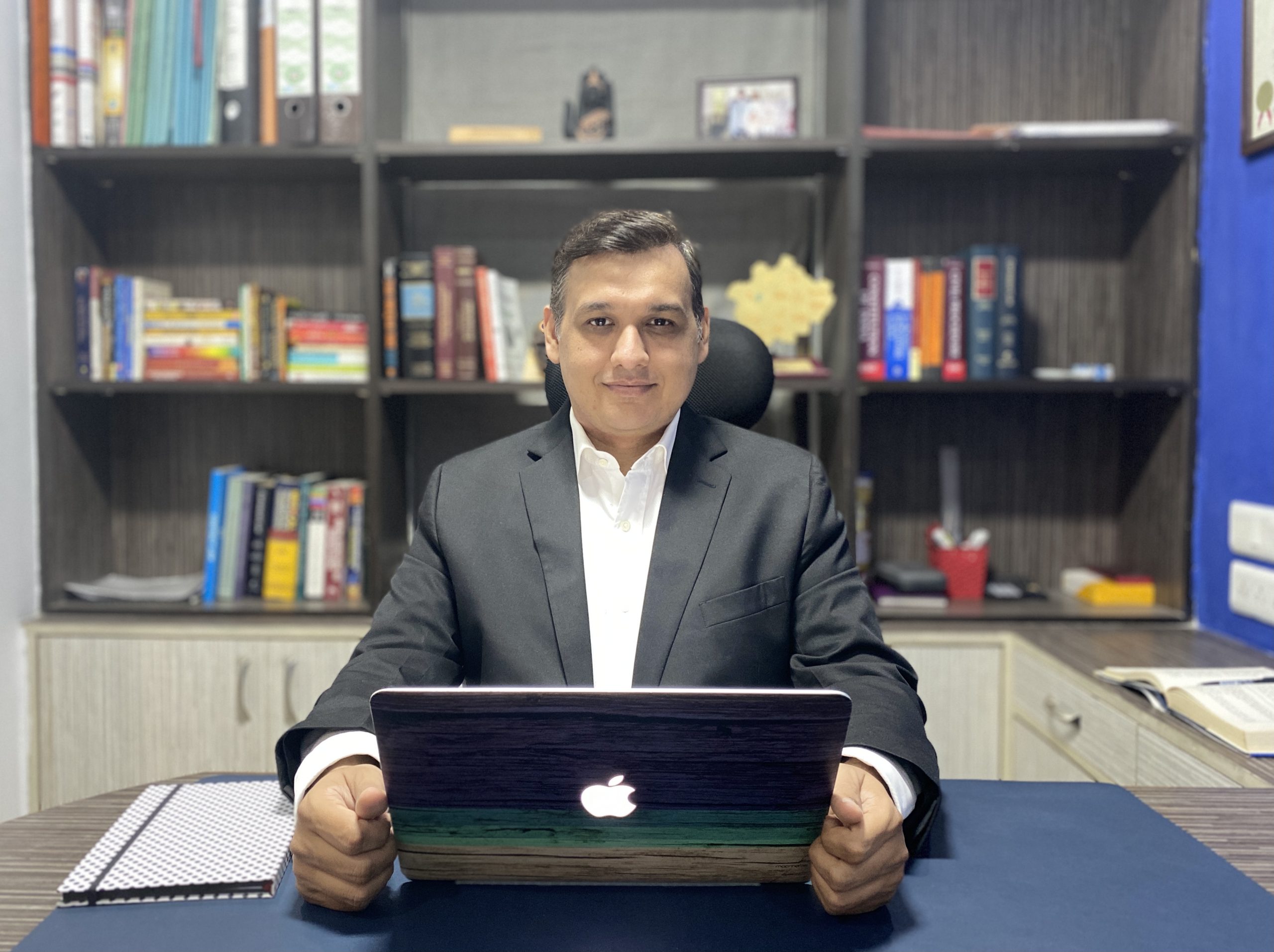
This interview has been published by Maaz Akhtar Hashmi and The SuperLawyer Team.
You had a wholesome experience at law school which included good grades, internships and social connections. How would you summarize your law school journey, and how did it prepare you for your LLM and practice ahead?
My law school journey was a mix of reasonable opportunities being provided by my law school and a lot of self-exploration. Since we were the first batch of our newly formed law school, we were privileged to be taught by some exceptional visiting faculty as well. I was always in love with general law and order around me, but law school structured it for me to understand how the law works in society and opened my avenues of thinking. My deep interest in law took me to many conferences, seminars and regularly allowed me to have a rendezvous with legal luminaries. I spent a lot of time reading judgments, and legal language always fascinated me. Believe it or not, I wasn’t very good at English, but I took it as a challenge to speak only in English everywhere I went. I participated in several Moot Courts and learned the art of drafting and oral arguments through moot courts. I particularly identified my interest in Intellectual Property Laws in the 3rd year and started paying more attention to IP related news and events. I subscribed to almost all literature available in the libraries and became a keen consumer of knowledge. In my 5th year, I even enrolled for a Post Graduate Diploma in Intellectual Property Laws, from FICCI, where I learned about global IP laws, which took me a step closer towards my LL.M. Overall, I was in love with my law student life and given a chance I would do it all over again.
You pursued an LLM in Intellectual Property Law from one of the best colleges in the world, i.e., UNH Franklin Pierce School of Law. Could you please tell our readers how the international exposure has helped you gain perspective to improve your skills in the legal field?
To me, it was no less than a miracle that I ended up in Franklin Pierce School of Law at the University of New Hampshire in the United States. I came from a lower-middle-class background where bread and butter didn’t go together as butter was considered a luxury. However, I dared to dream of pursuing my LL.M. from the US, something that was unheard of in my family. I knew it would be an uphill task as the Indian ways would not be of help in the US. For example, the way we are taught in law schools in India is very different from the US. We are mostly spoon-fed, given notes, taught in a classroom-like structure, with attendance being taken daily.
The US methodology: In the US, things were very different. Maturity was presumed, and you were expected to pretty much self-study. Classrooms were not for teaching; rather, they were for discussing what everyone had read. We never discussed the black letter law but discussed why the judge decided a certain way—different ways and why the minority opinion should have made more sense. For someone coming from an Indian education setup, it was an eye-opener. Within the first week itself, it taught me that no one would make things happen for me. I am told which books to read and am given access to the world’s largest IP library, but it is only upon me to decide how I want to make the most of it. I was no longer a frog-in-the-well and was exposed to a different methodology of studying and practising law. The hunger to learn more took me to moot courts in the US, where I spent substantial time learning to present a case smartly by juxtaposing the Indian and American art of advocacy.
Cultural learnings: The legal professional serves the people, and to serve them better, I found it important to understand how the people in the US were. Being a foreigner, I had to learn how they behave, their culture, societal systems, interpersonal ways of dealing with each other and much more. I interacted with a lot of locals and took all opportunities to participate in any social event. This ended up adding to my legal skills while dealing with people later on and assists me even now.
Studying with international students: In addition to all this, since I was studying with many international students, it was interesting to see how they were taught and in their jurisdictions. I made deeper connections by comparing their legal systems with ours in a foreign land.
All these combined, I felt my skills were massively upgraded from what I had in my bag when I left India. Eventually, when I landed a job in California, I was a ready resource as I had learned the American ways of legal practice.
In law school, you often visited the law offices of Mr. MK Miglani, a renowned IP lawyer in Delhi whose son studied alongside you. You have often spoken about how the impetus of being an IP lawyer began with your conversations with Mr. Miglani. Could you recollect some of the valuable points and advice he gave you during that time?
The beauty of a lot of things often lies in their simplicity. In the crazy world of music, a flute is often the most soothing sound. Sometimes, it is not just the lesson that makes an impact but the person delivering it or the way it is delivered that makes all the difference. Mr. MK Miglani is a self-made man, and his life lessons were simple. They were not imposed on a 20-something-year-old and were only shared when asked. Being a lawyer, my father told me simple things such as: “Stay true to the work” or “Don’t run after the money“. Mr. Miglani’s teachings were on the same lines. He taught me general principles of the legal profession that perhaps my father taught me but somehow, they made sense to me as they were from a been-there-done-that IP attorney.
I remember, once he was meeting a client and I was waiting to just say ‘Hi’ to him in the conference room. Fortunately for me, I could overhear some part of the conversation. In a world where lawyers would do anything to bill the client, he advised the client not to file a case and take an alternate route. The way he treated his clients was remarkable. He even introduced me to many publications like PTC (Patent and Trademarks Cases), Kerly’s Law of Trademarks and many more. He even suggested that I should go to Indian Law Institute’s law library in New Delhi. Every session with him, even if it were a casual one at his home, was a discussion of his ongoing litigation that he used to teach us a principle of law and how he framed arguments in that case. The way he prepared for final arguments was super impressive, and he invited me multiple times to High Court to see him argue. All this was a jackpot for an IP enthusiast like me, and I still follow his teachings. I still counsel a client to the best of my abilities without thinking about the billings, and I still hold a ‘thank you’ from a client much more than a paid invoice.
Having completed your LLM, you started working in a technology platform dealing with trademarks named Trademarkia in California. Could you share your experiences working in a law firm abroad and a few snippets of dealing with multiple jurisdictions at once?
Allow me to be candid, and I will tell you that I was very lucky to end up with a job in the US. Of course, I worked towards it; I sent resumes (email and print) to all possible job postings, followed up hard and kept going. Finally, I got a job offer from a California-headquartered IP law firm, Raj Abhyanker LLP and moved to California. I learned the US and International patent filings and patent docketing and assisted the Managing Partner in growing the Firm’s trademark practice. Trademarkia.com, another parallel venture of my the-then boss, was the world’s largest trademark database was conceived to make the trademark registration process simple and easily accessible to the public at large. It grew exponentially, and I was managing the operations of the company. Like a typical start-up, I was a part of hiring, training and scaling the operations. This was my first shift towards managing an enterprise and taking critical decisions that were backed by the CEO. Also, dealing with multiple jurisdictions also opened new avenues of learning. Taking to global law firms, understanding their jurisdiction’s legal processes and presenting to the customers in a simpler D-I-Y format posed its challenges. Still, we were committed way too much for these things to stop us. Trademarkia.com, with its own adaptation, continues to grow.
Having completed 6 years at Trademarkia, you joined LegalForce RAPC Worldwide, where you rose from a senior associate in the California office to being a Partner at the Firm’s India offices. Could you share some striking characteristics which helped you with this meteoric rise?
The law firm Raj Abhyanker LLP that I joined in 2006 was renamed to LegalForce RAPC Worldwide later, and Trademarkia.com was a by-product of the Firm’s trademark practice. Since I joined the Firm first, I was an integral part of the Firm’s legal practice and grew within the Firm. I soon became an integral part of the Firm and had all plans to stay in California for a much longer period. However, for reasons best known to God, my work visa got rejected. Turning this situation into an opportunity, I volunteered to take over the Firm’s India operations and expand to include multiple practice areas. We started with an office in Bangalore and later expanded to Nagpur, where we ended up hiring 75+ local attorneys.
Hard work still has no replacement. I worked day and night to sign up clients, train people in India, travel to the US as and when needed, and scale up things for the Firm. I was blessed to have someone at the top who recognized the value that I created, and soon, I was made a Partner in the India office. I was surprised and motivated like never before to keep going. Apart from hard work, I did not pay much attention to the hierarchy of the law firm or my job profile and was soon the go-to person for almost everything. I did everything that I could in my capacity to see the Firm grow. I did give up on a lot of things on the personal front and don’t regret that at all.
The other characteristic that came in handy was the people management skills. I came from Delhi, where being socially passive wasn’t an option. Being an introvert was seen as being anti-social and almost rude. On top of it, if you chose the legal professional, dealing with people was a way of living. Hence, I would rate my people management skills as a top characteristic that helped me rise professionally.
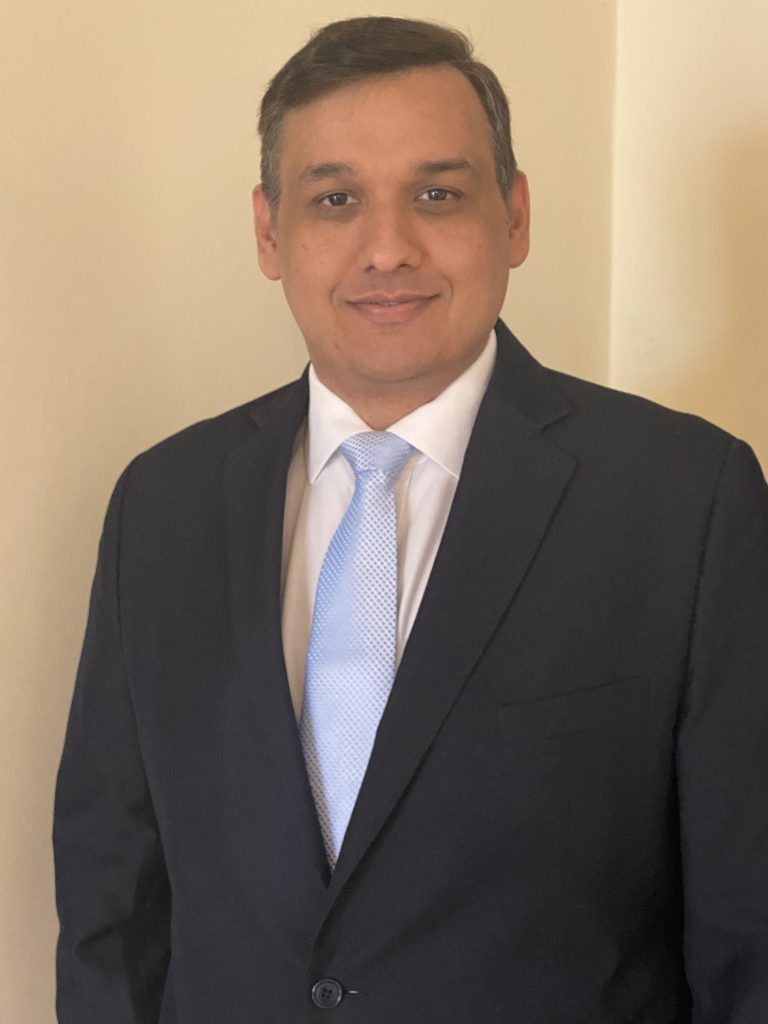
Being a partner for LegalForce RAPC in India, you oversaw global intellectual property matters. Could you share one of the most interesting transactions you witnessed during your time with the Firm? Did you feel any pressure prior to the commencement of such deals?
One of the best transactions I witnessed was during the first week of my joining. We represented a client based in San Francisco who wanted to buy a global trademark portfolio from an entity based in South Africa. This required me to conduct a global legal audit, negotiate the terms of the transfer with the South African attorneys, and arrive at a fair price. We worked with a London based IP valuation firm to arrive at a fair price. The negotiations were hard, penny driven, and I felt that the trust was being lost during the negotiations. However, since I billed time on this personally, I was able to make it work for the benefit of our client and seal the deal for him. And yes, the pressure is always there. It is natural to feel nervous or have butterflies in your stomach, but the butterflies eventually fly away, and you feel confident handling such deals. The confidence comes from your preparation knowledge and practice.
Pulastya Legal is a boutique law firm engaged in providing high-quality Intellectual Property and corporate legal services to its clients. When did the entrepreneurial seed start to grow, and was this a calculated approach or simply a gut decision? Would you please share with our readers the array of work you handle at the Firm?
As I have shared in my stories on Medium.com, the decision to start with my own law firm was a calculated risk that I/we took. I feel decisions like this cannot be based on one’s gut feeling as there are clients’ legal rights on the line. Yes, there were times when I felt that I would not be able to manage the Firm, but my Partner-stint at LegalForce RAPC Worldwide helped me immensely. I want to credit my younger brother, Mayank Sharma, who is also my Partner in Pulastya Legal came up with the idea of starting something of our own. It was his idea that this would be the right time to take the plunge. However, being the senior one, it was left to me to make and implement a plan. So, the seed of entrepreneurship was unknowingly planted by my Partner at LegalForce as he was a serial entrepreneur with multiple US patents to his credit. He was a rare mix of a lawyer, engineer, and entrepreneur. However, not everyone who worked with him was bitten by the entrepreneurial bug. My grit and the confidence of having my brother next to me motivated me big time.
As a Managing Partner at Pulastya Legal, I focus on advising several Indian and US-based clients on IP protection, licensing and technology transfer related issues. I am also responsible for originating and managing clients at the Firm. Since I have done hiring and training for my previous ventures, I am also actively involved in nurturing new talent and moulding them to the Firm’s needs. I also speak at law schools (virtually now) and am an active speaker at events at TiE. I, with my team, also offer pro-bono legal advice to entrepreneurs and small businesses on identifying their Intellectual Property and creating effective in-house IP incentive programs.
At Pulastya Legal, besides advising clients over various legal matters, you also offer pro-bono legal services to entrepreneurs and small businesses on identifying their Intellectual Property. How much do you think it is essential for a lawyer to provide pro-bono services and what are the effects of such initiatives?
Law is an exciting profession where we can make a major difference in someone’s life. Our clients’ interests take priority over ours, and it is important that we preserve the nobility of this great profession. Being a second-generation lawyer and being taught by some of the best professors and advocates at some of the best law schools, it only makes sense for me to continue to add to the righteousness of the profession. Yes, it is about billings and all that but never have I ever compromised the best interest of a client or a potential client. Just because they are not able to pay me for my services has never stopped me from providing the best of my counsel. Pro-bono service is a great way to give back to the society that looks up to you for their legal solutions. There is a larger interest that we are expected to serve that to make money out of our time. I feel this is a moral responsibility of every lawyer, and it must continue. One of the best stories that I cite everywhere is my counsel to a company when they needed me the most but made it clear that they won’t be able to afford my services. A few years later, this IT company got funded, moved to a big office, and remembered me for my time back in the day and gave me a 6-figure monthly retainer for my services. The best effect of such pro-bono initiatives is that it creates deeper relationships with the receiver of such services, and they always come back to you for the good that you did.
Intellectual Property is an emerging field of law globally. How do you think the Gaming, Entertainment, and Information Technology sectors benefit from it, given the rise of legal protection these invoke?
It is an understatement that the gaming, entertainment, and IT sectors gain from intellectual property laws. These sectors are driven by creativity, and nothing in these sectors will bear any relevance if IP laws are loose and do not cater to the needs of these sectors. No scriptwriter will ever write, no coder will ever create a game, and there will be no motivation for innovation. In fact, I have been a strong advocate for better implementation of IP laws, both at the administrative and judicial levels, even though our judiciary has been super active in reinforcing the rights of the IP owners. Nevertheless, the IP literature and judicial pronouncements have increased a lot over the last few years, and there is enough support for IP owners in these industries to feel secure in knowing that the law is on their side.
India’s Parliamentary Standing Committee on Commerce released a report on Intellectual Property reforms. The committee urged that the recent abolishment of the Intellectual Property Appellate Board (IPAB) be reversed. How do you think this will impact the Intellectual Property field?
I welcome the recommendation to reverse the abolishment of the Intellectual Property Appellate Board (IPAB). However, I have seen the IPAB work in person, and there is so much more to be achieved there. I agree that abolishing the IPAB will burden the courts immensely but having a system makes no sense if it does not solve the purpose. For me, the delays, the administrative inefficiencies, and the paucity of resources will always be a concern until they are resolved effectively. Particularly, when we represent foreign clients, it becomes difficult to explain to them the delays and inefficiencies of the IPAB, almost to the point that they think we are not managing their matters properly. Hence, simply reversing the decision to reinstate IPAB is not enough. If we are relooking at IPAB’s existence, we might as well make it impactful this time.
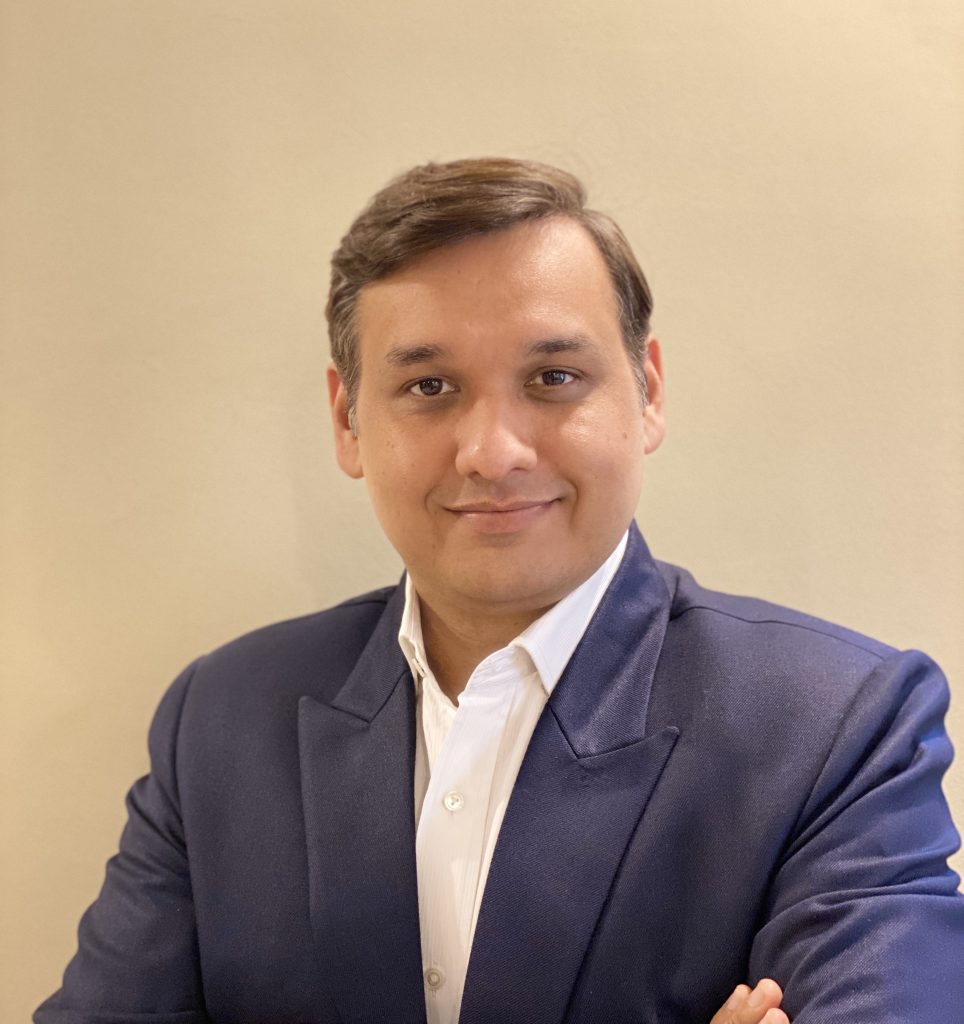
The pandemic has affected people, work, businesses, etc., around the world. How did you cope with the challenges entailed?
In these testing times, one of the first things that we did was to ensure that our team was taken care of. My Partner and I gave up our salaries and ensured that our attorneys and staff were fully paid on time. Money made so much less sense to us during these times, and we all realized how much we value each other. I was stuck in the US for over 3 months, in March to May 2020, and I had to be evacuated under the Vande Bharat Mission by the Government of India. My team ensured that they spoke to me regularly and showed great concern, and we all grew closer to each other. However, as Managing Partners, we kept a buffer for emergency situations for up to six months, so there was some relief. Our main priority was to stay safe and assist our team in staying safe. Hence we offered whatever help we could.
Workwise, the billings dried up, many of our legal retainers were put on hold, some cancelled, and it was indeed tough times as the Firm’s income took a nose-dive. Since we had some time at hand, we started preparing for work when we resumed to a state of normalcy. However, little did we know that it would take this long. We focussed on mental and physical health and got to learn some new skills. Fortunately, our relationships with our clients were intact, and as soon as they could, our retainers were reinstated. Hence, with the support of a great time, we sailed through the tough times with sanity and, in fact, we’re not that badly hit. Things are on their way back, and we hope to continue on our path of growth.
You have always advocated for “more risk, more gain” in life, and your decisions have consistently shown that you aren’t afraid of taking risks. What would be your advice to our readers who believe in stability and want to set off in a similar direction?
I have always advocated for taking calculated risks. I agree that stability is important, but risks are not bad. Not taking the first step is a big risk. Not having a plan is the biggest risk. Life is all about risks – isn’t it? Risks often come with a negative connotation; hence I always say more calculated risks should be taken. I also believe that one needs to try the following:
Stay focussed: In the day and age of instants gratification, a lawyer needs to stay focused on his tasks at hand. I often get asked about my career, and I always say, focus on your Daily Tasks, and you will end up with a great career.
Don’t overthink, just begin: No matter how much you prepare, things can still go wrong. Have faith in your abilities and take the plunge as you can never be 100% ready for everything. There is no guarantee that all seeds will blossom into flowers, but that does not mean we don’t plant seeds or we stop watering them. Life is all about figuring things as we go along. Educate yourself to make informed decisions. Take the first step, and the rest will follow.
I hate a backup plan: Having a backup plan takes my attention from Plan A, so I am not a fan of Plan B. Unfortunately, we are always taught to have a backup plan, but I personally don’t prepare for it. When we think of having a backup plan somewhere, we are already presuming that our Plan A will not work, and unknowingly, we put less effort into our Plan A.
Have Fun: Crack a joke, smile at work, and make friends along your journey. As a lawyer, always go the extra mile for your client. Serve them well and thank them for the opportunity to serve their legal needs. Ultimately, we all want to sleep better – right?
Get in touch with:




